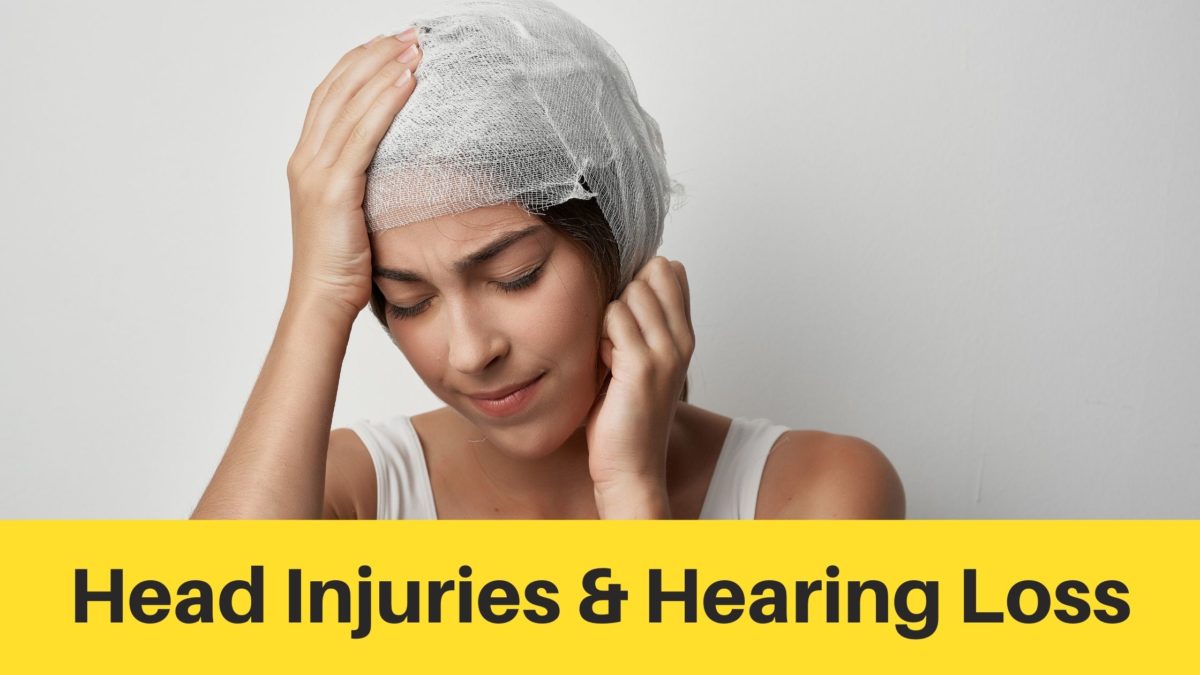- Common Hearing Aid Problems & How to Fix Them - June 14, 2021
- Why People Avoid Treating Hearing Loss — and Why You Should Schedule a Hearing Test! - May 21, 2021
- Common Hearing Aid Problems & How to Fix Them - May 14, 2021
Hearing loss is a chronic medical condition that is most often associated with aging. But numerous factors can actually contribute to the development of hearing loss. This includes exposure to loud noise, existing medical conditions, and head injuries. Head injuries involve extreme force to the head which can have various effects. This type of injury is experienced by millions of people every year, ranging from mild to severe and can cause hearing loss.
Head Injuries: Causes & Impact
According to the Centers for Disease Control and Prevention (CDC), there are nearly 3 million head injuries every year. One third of these cases (or 1 million) are severe, causing traumatic brain injuries. The CDC lists falls, car accidents, and being struck by an object as the most common causes of head injuries.
This trauma to the head can cause concussions as well as temporary and permanent symptoms including the following:
- Dizziness and vertigo
- Tinnitus which is a buzzing or ringing like noise in one or both ears (a common symptom of hearing loss)
- Chronic nausea and/or migraines
- Sounds are unclear making it difficult to hear clearly
- Difficulty locating where sounds are coming from
In addition to these symptoms, head injuries can also cause hearing loss which restricts a person’s ability to hear and process sound.
How Head Injuries Can Cause Hearing Loss
Extreme force to the head can cause the brain to bruise, localized bleeding, inflammation etc. This can damage different areas of the brain that are integral to processing sound. Additionally, head injuries can damage other parts of the auditory system including:
- Outer ear: the most visible part of the ear (outside portion), as well as the ear canal and ear drum.
- Middle ear: consists of three small bones that are connected, known as the ossicles.
- Inner ear: houses the cochlea which is filled with hair cells and fluid
The outer ear collects sound from the environment, which then travels through the ear canal and lands on the ear drum. This movement activates the ossicles which propel the soundwaves further into the inner ear. The hair cells in the cochlea help convert these soundwaves into electrical signals that are then sent to the brain (via auditory pathways) where they are further processed. This enables us to understand what we hear.
Head injuries can disrupt this process by damaging the components that carry out specific functions by: rupturing the ear drum, damaging the ossicles, impacting hair cells etc. This can restrict blood flow, create obstructions in the ear, impact auditory pathways etc. which creates challenges to absorbing and processing sound, resulting in hearing loss.
Protecting Hearing Health
If you have experienced a head injury it is important to have your hearing assessed. This starts by scheduling an appointment for a hearing test which is conducted by a hearing healthcare specialist (audiologist). Hearing tests are a painless and noninvasive way to measure hearing ability in both ears which identifies any impairment and the degree. This establishes hearing needs and informs the treatment option that would best meet those needs. Hearing loss is most commonly treated with hearing aids which are electronic devices designed to provide significant support with processing sound. This strengthens communication which has countless benefits including improving relationships, job performance, social engagement, and how you feel on a daily basis!
In addition to assessing your hearing and treating potential hearing loss, you can protect your hearing health by integrating simple safety measures including:
- wearing protective gear: while driving, riding a bike, playing contact sports etc. Wearing a seatbelt and helmet can prevent head injuries, or reduce their impact.
- wear hearing aids: if you have hearing loss, it is critical to always wear your hearing aids. People with hearing loss disproportionately experience accidental injuries and falls. It is important to be able to clearly hear warning signs (sirens, honks, voices), hazards, and be able to navigate all environments.
Head injuries can cause irreparable damage so it is critical to always practice safety measures and be as mindful of your environment as possible. Additionally wearing protective gear and hearing aids are useful ways to mitigate potential harm as well as protecting your hearing health!
If you are concerned about your hearing abilities, we’re here to help! Contact us today to learn more about our hearing services.

